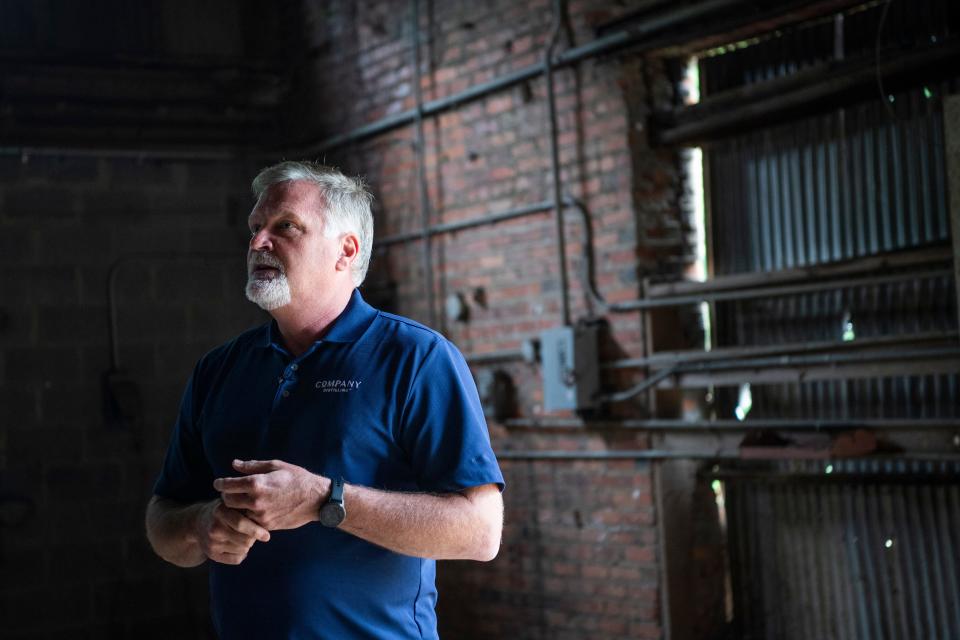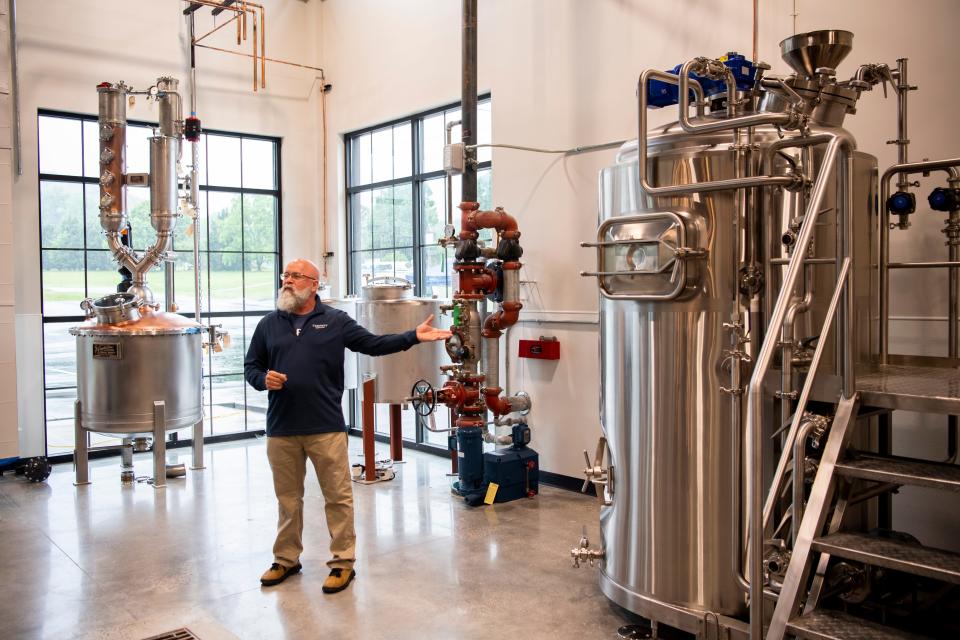Industry veterans celebrate great outdoors with unique whiskey
When the master distiller of Jack Daniel’s strikes out on his own, expectations run high as a creek in spring.
Jeff Arnett, founder of Company Distilling, didn’t want to put just anything in a bottle and sell it on his reputation. He thought everything through.
Where was the niche in the market? What could he do at Company that he couldn’t do at Jack Daniel’s? “A good product solves a problem,” he said. What were the problems he could solve?
Arnett decided to celebrate trees.
“There’s more biodiversity of trees in this state than in all of Europe,” he said. “I want to explore what Mother Nature has provided Tennessee that’s unique.”

Arnett hired Jack Daniel’s colleague and microbiologist Kevin B. Smith, “the smartest person in the industry people don’t know.” Smith is a fermentation nerd who cultivates yeast in his kitchen out back, where he also brews a light, sparkly kombucha.
Together, the men began mixing whiskey and wood, experimenting. “You can’t just do any wood with any liquid,” Arnett said.
WHISKEY TRAIL
TRAVEL TIP #4
Study up before you go: Check out a directory of the distilleries at tnwhiskeytrail.com/distilleries. Make sure to visit each website and see what kind of arrangements you need to make before hitting the road. If you need to book tours in advance, for example, you'll want to know before you show up at the distillery's doorstep.
Their experience helped. At Jack Daniel’s, they learned that if you want whiskey to come in contact with maple, you have to load chips into the barrel — maple barrels leak. It would have been an expensive mistake for a startup.
Arnett envisioned three anchor offerings. A wheated Tennessee whiskey, to honor the state's heritage and provide “that soft, sweet entry point.” An unusually high rye, 95%. And the perfect in-between bourbon, solving the problem: If you’re entertaining company at home and buying just one bottle, what will it be?
Then Smith and Arnett designed additional beverages, again solving problems.
Past, present and future: Tennessee whiskey industry old and giant — but also new and fledgling
Smith brews beer — light ones, because the spirits are so strong and because the outdoorsy sorts who come by the Townsend distillery on the cusp of the Great Smoky Mountains want something refreshing. They designed flavored spirits and sell campfire cocktail setups, because Townsend has no liquor stores, but you can buy limeade at the supermarket.
Arnett’s experience came into play in another crucial way: He planned for the long game.
The distribution. Company is expanding to new states slowly, “trying not to outkick our coverage,” Arnett said. They’re building a large facility in Alcoa that can quadruple production — and distill enough to sell to other distillers, even. But for now, their bottles are just in three states, probably eight or nine by the end of this year.

The hardware. Startups have a hard time getting enough barrels, and “the barrel is all your color and over half of your flavor,” Arnett said. He made a deal with Speyside Bourbon Cooperage, started by a former Jack Daniel’s cooper.
Most important, the liquid. Like most new whiskey distilleries, Company started out buying aged spirits to blend and manipulate while distilling and aging its own whiskey.
Arnett watched as some other Tennessee distillers started with old George Dickel barrels. “I knew once that pile of barrels was gone,” it was gone, he said. He didn’t want to run out. Furthermore, he wanted the liquid he bought to be as close as possible to the whiskey he was making, particularly in its grain content, so the transition would be relatively seamless.
Arnett and Smith envisioned a four-grain bourbon: 65% corn, 25% wheat, 5% rye, 5% malted barley. “There’s none of that in the sourcing market,” Arnett said. “I basically built a composite,” buying three different bourbons from three different states and trying to make a fourth whiskey that improved on them all.
The three core whiskeys are indeed distinctive. The rye is grassy and raspy, a rye lovers’ drink. The bourbon is complex. The Tennessee whiskey is finished with applewood.
“Shame on me if I couldn’t think of something unique to do,” Arnett said.
Danielle Dreilinger is an American South storytelling reporter and the author of the book “The Secret History of Home Economics.” You can reach her at ddreilinger@gannett.com or 919/236-3141.
This article originally appeared on Nashville Tennessean: Company Distilling: Tennessee whiskey under Great Smoky Mountains

